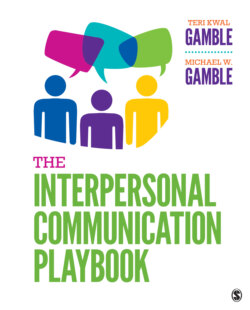Читать книгу The Interpersonal Communication Playbook - Teri Kwal Gamble - Страница 86
На сайте Литреса книга снята с продажи.
The Pygmalion Effect
ОглавлениеAmong the most widely reported examples of the self-fulfilling prophecy is that used by psychologists Robert Rosenthal and Lenore Jacobson in their classic study Pygmalion in the Classroom, named for George Bernard Shaw’s play Pygmalion. In the play, later adapted into the musical and film My Fair Lady, Henry Higgins transforms Cockney flower girl Eliza Doolittle into a duchess by believing that he can help her learn to speak and act like one.
Rosenthal and his associates informed a number of teachers that certain of their students were expected to “bloom”—that is, perform exceptionally well—during the following academic year. The teachers were unaware that the student names had actually been selected randomly, and there was no basis for predicting who would succeed. Despite this, the students who were singled out to bloom did so, improving their IQs and performing at higher levels than would otherwise have been expected.31 Apparently each teacher had functioned as a positive Pygmalion, causing the students to live up to the labels placed on them.
The teachers gave the “about to bloom” students extra positive verbal and nonverbal reinforcement, waited patiently for the students to respond if they hesitated, and did not give them negative feedback when they offered incorrect answers. Thus, the teachers’ behavior influenced the students’ perceptions of their own abilities. The “about to blooms” responded to the teachers’ prophecies by fulfilling them. Like Eliza Doolittle, the students acted like the people others perceived them to be.
How often do you compare yourself to others?
iStock.com/AntonioGuillem
The Pygmalion effect, as this form of the self-fulfilling prophecy has come to be known, influences performance in a variety of settings, from work-related to educational to social, and it does so in both positive and negative ways. When others have high expectations for a person, their opinions tend to result in enhanced performance, but when a negative Pygmalion has low expectations for others, the result is typically diminished performance. Consequently, managers’ expectations can help or hinder worker production, and teachers’ expectations can boost or deflate student grades. We live up to—and down to—expectations.
